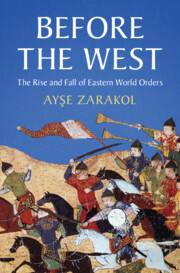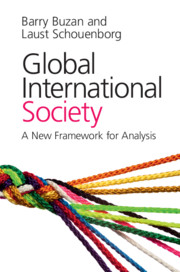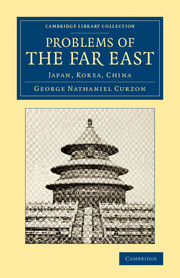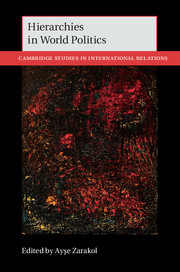After Defeat
Not being of the West; being behind the West; not being modern enough; not being developed or industrialized, secular, civilized, Christian, transparent, or democratic - these descriptions have all served to stigmatize certain states through history. Drawing on constructivism as well as the insights of social theorists and philosophers, After Defeat demonstrates that stigmatization in international relations can lead to a sense of national shame, as well as auto-Orientalism and inferior status. Ayşe Zarakol argues that stigmatized states become extra-sensitive to concerns about status, and shape their foreign policy accordingly. The theoretical argument is supported by a detailed historical overview of central examples of the established/outsider dichotomy throughout the evolution of the modern states system, and in-depth studies of Turkey after the First World War, Japan after the Second World War, and Russia after the Cold War.
- Advances a novel argument about how states are socialized into the international system
- Introduces 'stigma' as a driving force in states' foreign policies
- Combines theories from international relations with social theories which focus on social stratification
Reviews & endorsements
“After Defeat explains that—in the wake of massive, historic international defeat—Turkey, Japan and Russia adopted foreign policies to respond to the idea that they were somehow inadequate and less than the West. ..After Defeathits high notes with its unusual comparisons, elegant analysis and trenchant rethinking of international relations approaches. As such, After Defeat will appeal to foreign policy generalists, policymakers, international relations scholars as well as sociologists and political theorists.” - George Gavrilis, The Hollings Center
Product details
December 2010Adobe eBook Reader
9780511922633
0 pages
0kg
This ISBN is for an eBook version which is distributed on our behalf by a third party.
Table of Contents
- Introduction
- Part I. Of Gates and Keepers in the International System:
- 1. Outsiders and insiders in the international system
- 2. States as outsiders
- Part II. An Imperial Message:
- 3. The 'barbarians': Turkey (1918–39)
- 4. The 'children': Japan (1945–72)
- 5. The 'enigma': Russia (1990–2007)
- 6. Conclusion: 'Zealots or Herodians'?










